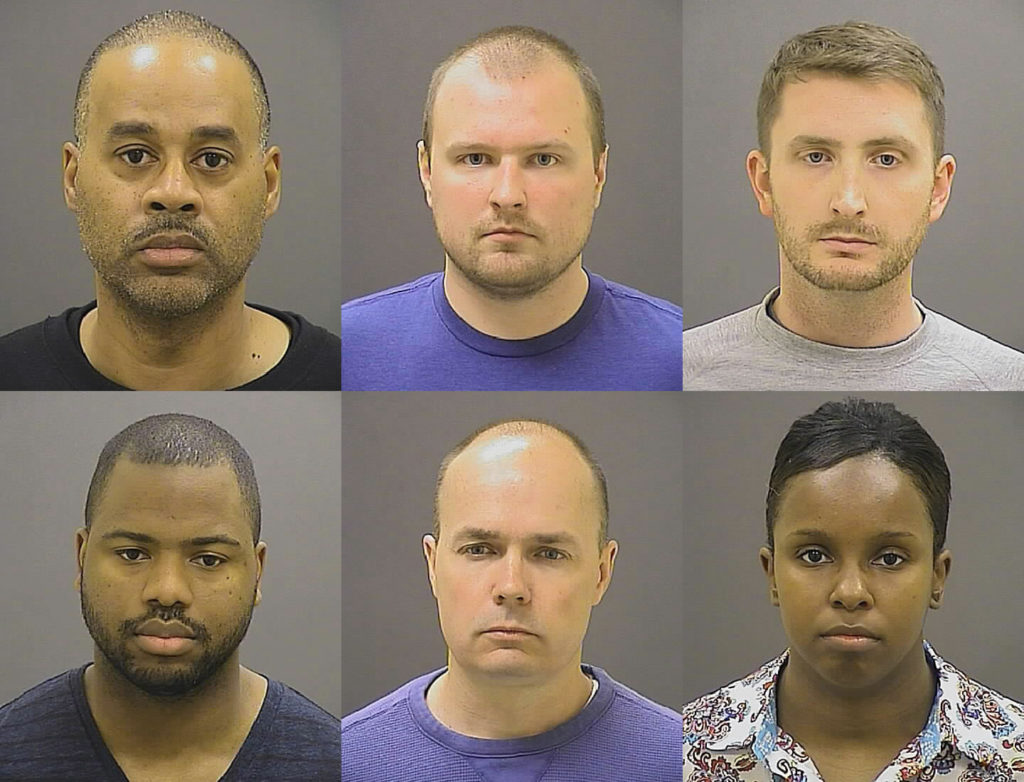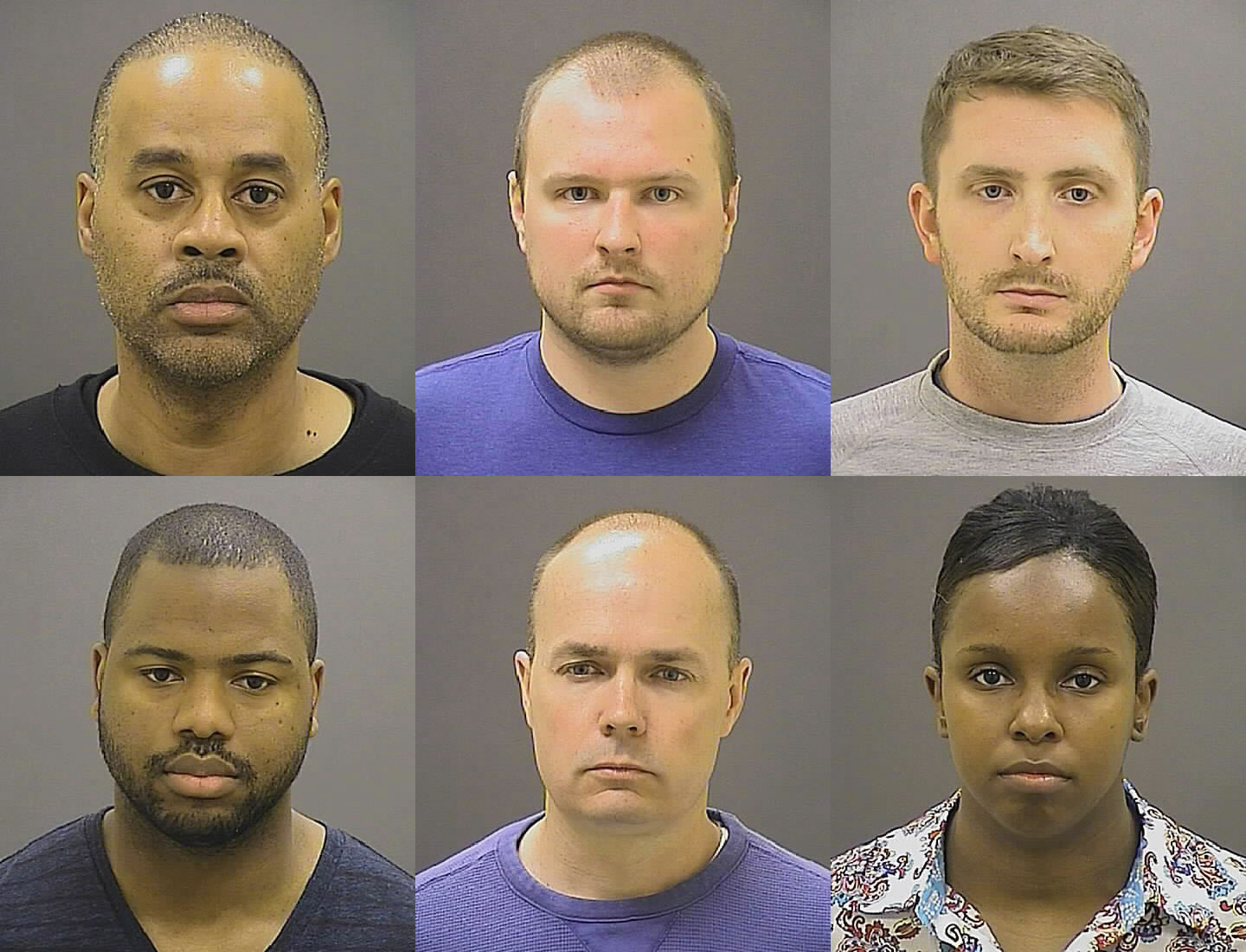
The U.S. Department of Justice said Tuesday it won’t bring federal civil rights charges against six Baltimore police officers involved in the arrest and in-custody death of Freddie Gray, a young black man whose death touched off weeks of protests and unrest in the city.
The officers were charged by state prosecutors after Gray’s neck was broken in the back of a police van in April 2015. The 25-year-old was handcuffed and shackled, but he was unrestrained by a seat belt.
The Justice Department said in a statement that while Gray’s death was “undeniably tragic,” federal prosecutors did not find enough evidence to prove the officers willfully violated his civil rights, a high legal threshold. Five officers face internal disciplinary hearings scheduled to begin Oct. 30. The Justice Department decision was first reported by The Baltimore Sun. The Baltimore Police Department, Mayor Catherine Pugh, State’s Attorney Marilyn Mosby and the U.S. attorney’s office declined to comment on the decision.
Gray’s death triggered the firing of then-police commissioner Anthony Batts. But bringing civil rights charges against police officers is exceptionally difficult in any administration. Authorities in such cases must prove an officer willfully violated someone’s civil rights, a high standard of proof, a challenge that has complicated prosecutions in past police cases. The Justice Department said its career prosecutors and the FBI devoted “significant time and resources” to investigating the case.



